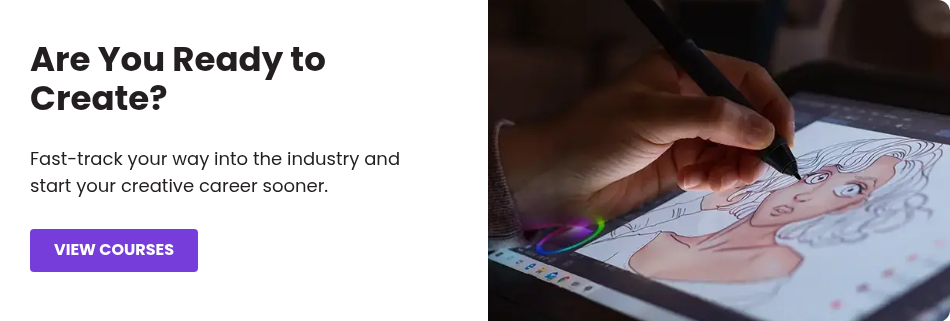For some people, the idea of working as a freelance artist is the dream. Managing yourself, taking the work that suits you best and working flexible hours from home in a dressing-gown.
While freelance work can be an amazing way to keep working between big studio projects and can even be a full-time source of income, it certainly isn't for everyone. Some artists need the clearly defined work hours, finely tuned schedule and team environment that comes with working in a studio.
There are three main things you need to take in to account before considering freelance work: yourself, clients, and finances."
We asked mentor Jeremy Chinn to give us his thoughts on the world of freelance art and whether could share some of his advice and experience with us.
Over the past year, I've been approached a few times regarding questions about the possibilities of freelancing as a means of making extra money without working in a full studio. As a modelling mentor, this may come up a bit more as it's fairly easy to think about starting to freelance and there are many different models online that show easy ways to sell 3D models, etc.
I wanted to take a moment to talk a bit about the freelance process, the business and industry that we work in, and some of the considerations students should take into account. Freelancing in other industries is talked about quite a bit. But for us, in animation and visual effects, it tends to be a bit more shrouded. I've asked some of my fellow mentors here at CG Spectrum about the world of freelance art and compiled all of our advice and experiences bellow.
From my own experience and those of the other mentors, there are three main things you need to take into account before considering freelance work: yourself, clients, and finances.
1. You
The first thing you want to do when considering freelance is to take stock of yourself and where you are in your life. This is a very important step, and not being honest with yourself can create quite a bit of hardship down the line.
Can you:
- Deal with working alone for long periods of time? Freelance is very different from the typical collaborative workflow. Get ready to sit by yourself for many hours a day and really start to appreciate the sound of your own voice. Some people love this idea, but for others, it can be a real struggle. Make sure you get out and attend networking events, whether this is going to a conference or catching up with other artists outside of work. This will help expand your network and keep you socially active.
- Are you self-motivated and disciplined? Are you prepared to work 8-10 hours a day from the comfort of your own home? Working at home can be extremely distracting. Family members, pets, and the TV are all right there. Chores to do, snacks to be had, hours of Netflix Originals to binge through. All of this can all make it difficult to concentrate and get the job done. It may be helpful to rent a small office close to home. There are plenty of community workspaces popping up these days where you can surround yourself with like-minded professionals and create even more networking opportunities.
- Communicate well with those around you? If you do choose work from home, make sure to have a conversation with your partner, roommate, family or pet and set clear boundaries around your availability. Develop a schedule so you can still be accessible if needed. Free-lancing allows you to be flexible with your time, which is liberating. But you also must be mindful of your work ethic in order to be successful.
- Can you interpret a clients vision easily? Being able to physically meet with clients can be difficult when working from home and can lead to communication issues. Especially when you're first starting out, you may not have extensive experience interpreting notes in person, much less through emails. This can be a costly process as changes tend to take away from your bottom line. Make sure to set up a schedule with your client for reviews. Depending on the client you may need to meet with them more regularly or they may trust your judgment and only need a few meetings over the course of a project. Make sure these times are scheduled and agreed upon.

2. Your clients
The second thing to consider is clients. Getting them. Keeping them. And working with them. In a studio, this is something that the executives or producer would do for you. But when you freelance, it's all up to you.
Do you:
- Have industry contacts to help you when first starting out? Starting without any industry contacts can be a quick road to failure. Cold-call clients can be very risky, not only to get but to get payment from. Having a few well established, trustworthy, prospective clients and contacts prior to starting out on your own is a tremendous help. If you are just starting out it is extremely important to have a professional website set up with a portfolio that shows off your skillset. Clients that hire freelancers are usually looking for specific needs and won’t bother hiring you if your portfolio doesn’t match their requirements. When there are breaks in your freelancing schedule you should consider this a good time to add to your portfolio. Keep on top of what is trending in the industry and create some personal work that reflects this. Constantly improve your work and learn new skills to compliment your strengths so you will be more hireable.
- Have experience selling? This ties a bit back into the first topic, but once you've exhausted your known clients, you will need to work on selling. And the product you'll be selling is yourself. If a client is talking to you it means they've accepted your quality of work, but can they trust your ability to work to time frames, your ability to translate their vision and your ability to deliver the final product? It's your job to sell that. After you have completed a job ensure that you get a good reference and post it on your website or LinkedIn profile. You can ask the client to provide you with a review about your work or even get them to approve something you have written so they don’t have to.
- Have the ability to collect payments? One of the biggest reasons to be weary of cold-call clients (meaning those you don't have a personal relationship with) is the payment process. Because neither of you knows each other, trust can be difficult to establish, and even with the best of intentions, many clients may be slow to pay. Be very careful here, and always establish ways to not get taken advantage of, whether that be getting payments as the project moves forward, half up front, or whatever you and your client are amenable too. But never, ever, deliver a final project to someone you don't know without payment first. Make sure you have multiple methods of payment options available to your client whether it’s Paypal, bank transfer or a cash transfer in a dark alley. Make it easy for them to pay you.
- Know your rights as a freelance artist? It is extremely important to be aware of your rights as a freelance artist and what avenues you can use if clients do not pay. It’s getting easier these days to do a bit of research on how reliable a client is. Network with other artists that have done work with them but keep in mind there are two sides to every story. Try to get as many facts as you can before taking work.
Not being honest with yourself can create quite a bit of hardship down the line."
3. Your finances
The last thing to consider is finances. This ties back into yourself and your clients but it's a very large part of the freelancing workflow.
Are you:
- Financially set up to be able to withstand slow months? Starting off freelancing can be like any other business, especially if you don't have a steady set of clients lined up before starting. Are you in a position to withstand the start-up process and take a few months with minimal pay? In the same regard, are you disciplined enough to save to make it through the slower months without losing sleep? It may be a good idea to set up high-interest savings account that you transfer funds to on a daily, weekly or monthly basis. Putting away a small amount of money every day can add up over the long run and you’ll barely notice it. When you get paid to make sure to put half of it away after your bills are paid and your basic needs are taken care of. Also, consider the cost of upgrading equipment and keeping your business running smoothly. Invest in yourself first.
Do plumbers or electricians work for free after years of expensive education just to get exposure? No. Be polite and move on."
- Able to set budgets and give appropriate estimates? Do you know how long it takes you to do things? Typically, freelancing is on a per-project basis, so having the ability to accurately calculate how long a project will take can be everything. Make sure you take into account all of those client changes! When you are starting out it can be tempting to low ball yourself in order to get the job. This may be a good short-term move to expand your portfolio but make sure you consider the long run and the costs of operating. DO NOT EVER WORK FOR FREE. If a client tells you it would be a good chance for you to get exposure, this is a good sign they aren’t worth the hassle. Do plumbers or electricians work for free after years of expensive education just to get exposure? No. Be polite and move on.
- Able to deal with personal accounting? Freelancing is running your own business, be sure to take into consideration the time to deal with the paperwork, accounting, tax ramifications, and invoicing. Regardless of whether you are a freelance artist or not, it is always important to oversee your personal finances. If you get lots of work and you’re busy, make sure to hire an accountant. If you have some spare time learn how to do your own taxes. Always account for tax deductions and work that into your rate. It is standard to add goods and service tax to your clients on top of your rate.
- Ready to deal with international clients? If you are freelancing with international clients be aware of forex conversion rates when calculating your rate and adjust accordingly. Always calculate your rate based on your countries standard living wage and tax rate. A good assumption is to save 30% of your payment for your annual taxes. If your countries tax rate is lower, you will get a bit of extra money at the end of the year. Bonus!
As a general rule, due to the reasons above, I like to discourage students from trying to freelance too soon. Getting a job in a studio, experiencing the latest in workflow and efficiencies, learning how to deal with clients, and how the general production process works can be invaluable.
But if it is something that interests you, please consider the topics above when thinking about whether it would be right for you. Freelancing can provide flexibility in your life, a simple commute, and the satisfaction of working for yourself, but it can also be very stressful if the proper environment doesn't exist.
If you're interested in starting a career in the Animation and VFX industry check out our full offering of courses in the link below.

Related Links



